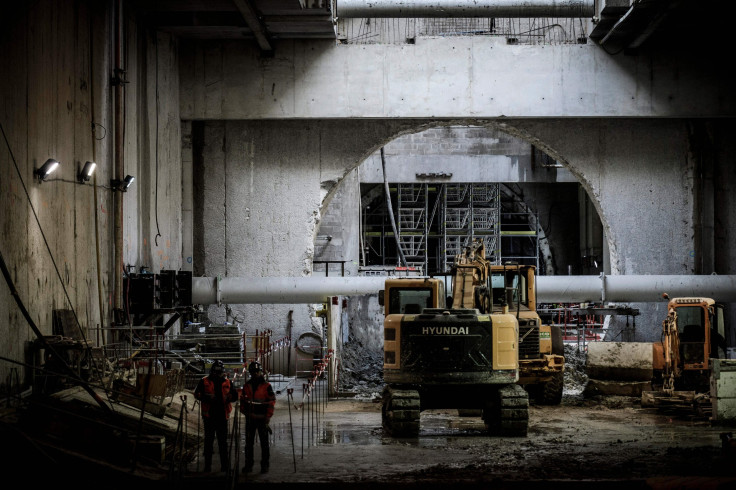Tech Startup Develops Robots, Self-Driving Bulldozers For Safer, Cheaper Construction Sites

A San Francisco-based robotics company is developing fully driverless bulldozers and excavators to make construction safer and more effective.
Noah Ready-Campbell, the founder and CEO of tech startup Built Robotics, may be at the forefront of making the construction industry more technologically advanced, as the company had raised $15 million according to a CNBC report in October. Built Robotics' website reads: "We are building the future of construction."
"The idea behind Built Robotics is to use automation technology make construction safer, faster and cheaper," Ready-Campbell said in an Associated Press report Monday.
"The robots basically do 80 percent of the work, which is more repetitive, more dangerous, more monotonous. And then the operator does the more skilled work, where you really need a lot of finesse and experience."
In February, Built Robotics tested its automated bulldozer, equipped with sensors and autonomous driving technology, on a construction site in San Jose. The assessment allowed the company to see how the machines worked under pressure.
Built Robotics is just part of a coalition of tech companies attempting to bring the construction industry into the future, paring workers with machines that utilize artificial intelligence. According to CNBC, more than 40 companies in California have licenses to test autonomous vehicles.
"We need all of the robots we can get, plus all of the workers working, in order to have economic growth," Michael Chui, a partner at McKinsey Global Institute in San Francisco, told the AP. "As machines do some of the work that people used to do, the people have to migrate and transition to other forms of work, which means lots of retraining."
This technological advancement comes as the construction industry struggles to hire skilled workers. About 70 percent of construction companies are having trouble with labor shortages, according to a survey in August by the Associated General Contractors of America, forcing many firms to change the way they recruit and compensate workers.
"To get qualified people to handle a loader or a haul truck or even run a plant, they're hard to find right now," said Chui. "Nobody wants to get their hands dirty anymore. They want a nice, clean job in an office."
© Copyright IBTimes 2024. All rights reserved.











